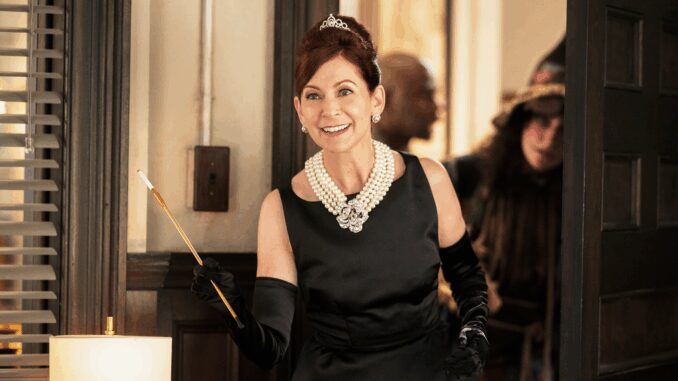
The Colbert Bump, Reimagined: Elsbeth and the Enduring Allure of Self-Aware Charm
The flickering neon lights of late night, traditionally a battleground of biting wit and topical humor, have always held a peculiar fascination. The pressure, the immediacy, the sheer stamina required to deliver nightly doses of levity is undeniable. So, when Stephen Colbert, the venerable host of "The Late Show," stepped onto the vibrant set of "Elsbeth," not as himself, but as a fictionalized, slightly exaggerated version of his late-night persona, the effect was both surreal and surprisingly insightful. This cameo wasn’t just a guest appearance; it was a meta-commentary on the very nature of performance, personality, and the enduring power of Colbert's carefully crafted brand of self-aware charm.
"Elsbeth," with its quirky protagonist and unconventional crime-solving methods, is a world ripe for playful disruption. Into this vibrant landscape steps a fictionalized Colbert, a character both recognizable and subtly askew. He embodies the familiar anxieties of the late-night host – the constant need for fresh material, the pressure to stay relevant, the simmering insecurity beneath a veneer of confident joviality. But the twist is that this Colbert, while still possessing that signature blend of intellectual humor and disarming sincerity, is forced to confront the absurdity of his own creation. He's a caricature, a distillation of the public perception of Stephen Colbert, thrust into a world where his carefully constructed persona is both an asset and a hindrance.
This is where the brilliance of the appearance lies. It allows us to dissect the performance within a performance. We see the Colbert we think we know interacting with Elsbeth, whose own eccentricities force him to confront the artifice inherent in his late-night persona. He’s confronted with genuine surprise, unguarded reactions, and a sincerity that transcends the carefully scripted banter of his show. Elsbeth's genuine interest in him, not as a celebrity but as a person, chips away at the polished façade, revealing glimpses of the man behind the character.
The episode cleverly plays with the audience's pre-conceived notions. We expect Colbert to be quick-witted, topical, and effortlessly funny. And he is, to a degree. But the context is different. He's not delivering a monologue; he's interacting with a narrative, a plot, and other characters. The scripted humor feels different, tinged with a sense of self-deprecation. He acknowledges, perhaps even embraces, the absurdity of his situation. This willingness to poke fun at himself, to deconstruct the very image he has cultivated, is what ultimately makes his appearance so compelling.
Furthermore, the "Elsbeth" cameo highlights the enduring appeal of Colbert’s specific brand of humor. In an era saturated with irony and cynicism, Colbert has managed to carve out a space for intelligent, optimistic satire. He uses humor not just to lampoon the powerful, but also to explore complex social and political issues. This depth, even in its fictionalized form, resonates with audiences craving more than just empty punchlines. His performance in "Elsbeth" reminds us that behind the comedic timing and carefully crafted persona lies a genuine desire to connect with people, to provoke thought, and to ultimately, make the world a slightly better place, one witty joke at a time.
Ultimately, Stephen Colbert's appearance in "Elsbeth" is more than just a cameo; it's a clever deconstruction of celebrity, a playful exploration of performance, and a testament to the enduring power of self-aware charm. It reinforces the idea that even the most carefully constructed personas are ultimately human, flawed, and capable of surprise. And in a world increasingly dominated by curated images and meticulously crafted narratives, that vulnerability, that willingness to break character, is perhaps the most genuinely appealing performance of all. The Colbert "bump" on "Elsbeth" wasn't just a ratings boost; it was a reminder of why Colbert's unique brand of humor continues to resonate, captivating audiences with its intelligence, wit, and enduring, underlying humanity.
